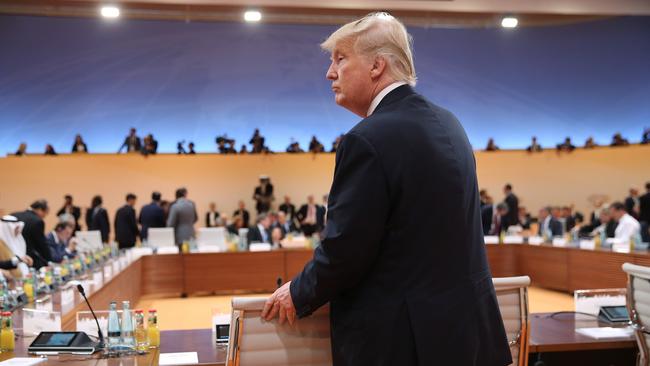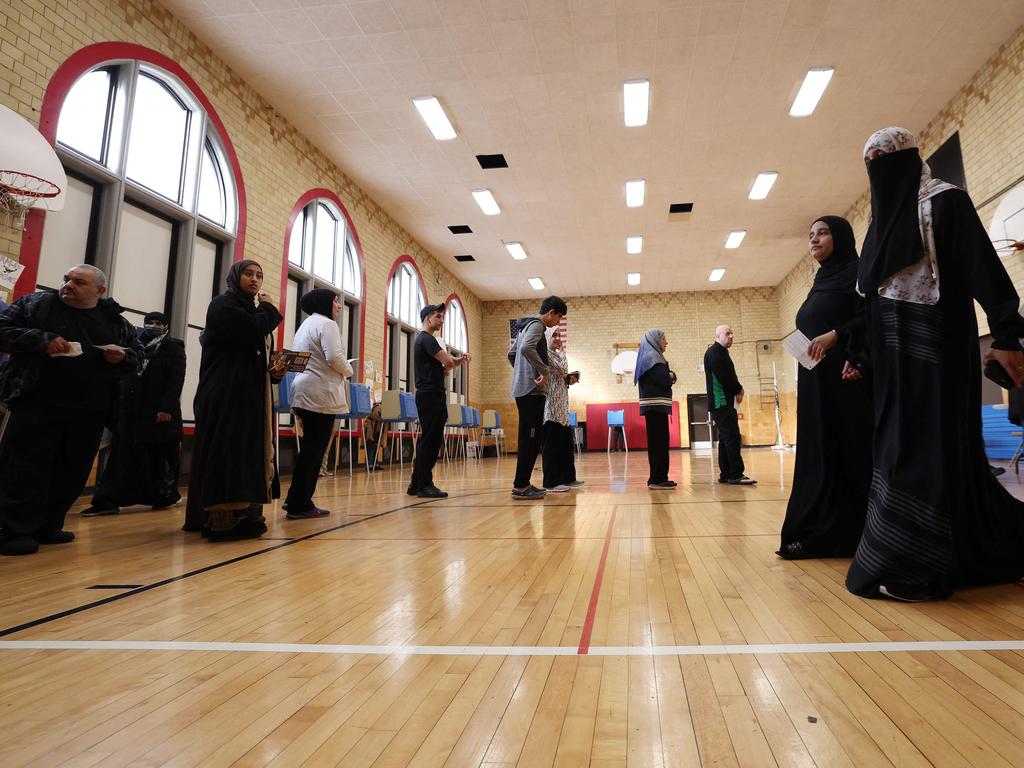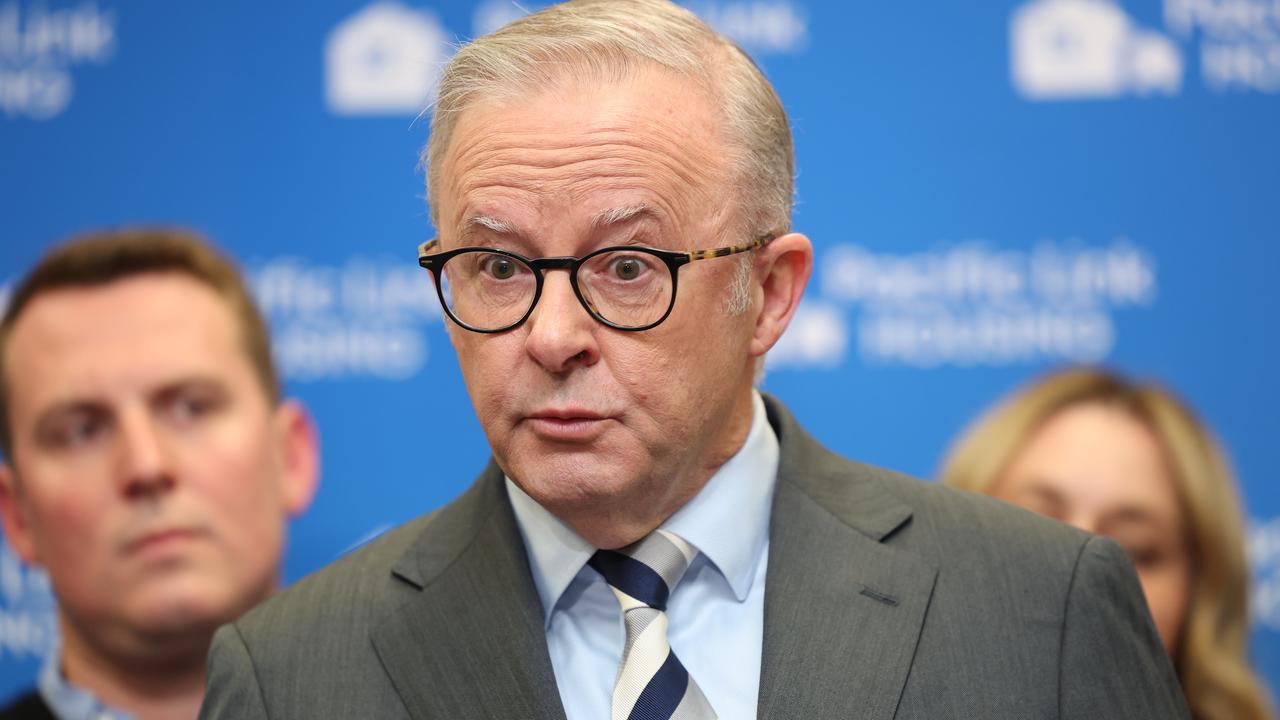Climate Change Authority’s Matt Kean says Australia must be ‘aggressive’ in emissions reduction after Donald Trump’s win
Matt Kean, Anthony Albanese’s chief climate tsar, makes the declaration as the Prime Minister refuses to commit to a 2035 target before the federal election.

Anthony Albanese’s chief climate tsar has declared Australia’s “job” to drive down emissions and power up a cleaner economy has become “even more urgent” following Donald Trump’s win, as the Prime Minister refuses to commit to a 2035 target before the federal election.
Former NSW Liberal minister Matt Kean, who was appointed Climate Change Authority chair in August for a five-year term, warned if “other countries” vacated the clean-energy field then Australia should seize the economic opportunity by doubling down on its own ambition.
Amid expectations Mr Trump will again withdraw from the Paris Agreement, accelerate oil and gas projects and repeal what Republicans have referred to as “harmful slush funds” for clean energy under the Inflation Reduction Act, Mr Kean said “the case for action is compelling and as a nation already feeling the effects of climate change, Australia will need to continue to act aggressively to curb our emissions”.
“Our job in Australia is to harness the capital seeking a home in green-energy projects to drive down emissions and power up a cleaner economy.
“It’s a task that I believe is even more urgent after the results of the election,” Mr Kean told the summit of the Investor Group on Climate Change.
“What’s also clear is that the world still needs the technology, goods and services that will support decarbonisation. With our access to capital, natural resources and capacity for innovation, Australia is well poised to capitalise on that demand and we should steal the rug from under countries that don’t want to take it.”

The CCA is preparing crucial advice to the Albanese government on a 2035 emissions reduction target but it won’t be ready until the new year at the earliest, with Mr Albanese – who has not attended a UN Climate Change Conference since he was elected in 2022 – failing to commit to releasing the target before the election next year.
“We are focused on delivering our target to 2030, which is 43 per cent, which is legislated, and net zero by 2050,” Mr Albanese said. “Even if you were a climate sceptic and didn’t believe any of the science and didn’t notice there were more floods and more bushfires and more cyclones – it would still be good policy because it will produce the cheapest form of energy, not the most expensive, which we know as nuclear.”
Opposition foreign affairs spokesman Simon Birmingham said he wanted Australia to remain committed to net zero by 2050 and didn’t expect a change in that commitment, but added the government of the day would “need to look carefully in terms of how the totality of policies evolve over the next few years” following Mr Trump’s re-election.
Former Reserve Bank deputy governor Guy Debelle conceded the new Trump administration heavily investing in oil and gas would be “really bad for the emissions profile” but he didn’t believe America’s progress in green industries would be reversed.
While climate experts cautioned global ambition could be slowed by Mr Trump’s second presidency, they insisted the momentum behind renewables was unstoppable. “(Clean energy) plants aren’t going to be shut down in the US, and a lot of those plants are sitting in Texas, which is fairly red. I’ve never seen a congress person who’s willing to cut spending which is going to cause job losses in their own district,” Dr Debelle told the summit.






To join the conversation, please log in. Don't have an account? Register
Join the conversation, you are commenting as Logout